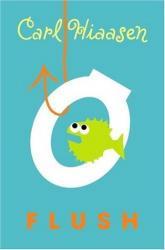
The Coral Queen, a very profitable casino boat, is dumping all of its sewage into the ocean. The only problem is that Dusty Muleman, the owner of the Coral Queen, is getting away with the illegal dumping since there is no evidence. Noah's Dad is concerned with the environment and always likes to do the right thing. However, he sometimes gets carried away. Therefore, Noah's Dad decides to sink the Coral Queen, but gets caught in the process and sent to jail. Now it is up to Noah to clear his dad's name and bust Dusty Muleman.
This book is hilarious and has a great moral. There are unexpected twists and turns throughout the entire book. I highly recommend this book to all middle and early high school aged readers.

The Coral Queen, a very profitable casino boat, is dumping all of its sewage into the ocean. The only problem is that Dusty Muleman, the owner of the Coral Queen, is getting away with the illegal dumping since there is no evidence. Noah's Dad is concerned with the environment and always likes to do the right thing. However, he sometimes gets carried away. Therefore, Noah's Dad decides to sink the Coral Queen, but gets caught in the process and sent to jail. Now it is up to Noah to clear his dad's name and bust Dusty Muleman.
This book is hilarious and has a great moral. There are unexpected twists and turns throughout the entire book. I highly recommend this book to all middle and early high school aged readers.

The Coral Queen, a very profitable casino boat, is dumping all of its sewage into the ocean. The only problem is that Dusty Muleman, the owner of the Coral Queen, is getting away with the illegal dumping since there is no evidence. Noah's Dad is concerned with the environment and always likes to do the right thing. However, he sometimes gets carried away. Therefore, Noah's Dad decides to sink the Coral Queen, but gets caught in the process and sent to jail. Now it is up to Noah to clear his dad's name and bust Dusty Muleman.
This book is hilarious and has a great moral. There are unexpected twists and turns throughout the entire book. I highly recommend this book to all middle and early high school aged readers.

The Coral Queen, a very profitable casino boat, is dumping all of its sewage into the ocean. The only problem is that Dusty Muleman, the owner of the Coral Queen, is getting away with the illegal dumping since there is no evidence. Noah's Dad is concerned with the environment and always likes to do the right thing. However, he sometimes gets carried away. Therefore, Noah's Dad decides to sink the Coral Queen, but gets caught in the process and sent to jail. Now it is up to Noah to clear his dad's name and bust Dusty Muleman.
This book is hilarious and has a great moral. There are unexpected twists and turns throughout the entire book. I highly recommend this book to all middle and early high school aged readers.
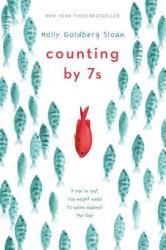
Willow Chance is a twelve year old genius whose main interests are gardening and medical conditions. At the beginning of the book, Willow is driving home with her school counselor, Dell Duke, when she spots police officers waiting around in her driveway. Willow immediately knows something is wrong. She soon discovers from the officers that both of her parents, Jimmy and Roberta Chance, were killed in a deadly car accident which leaves Willow heartbroken and confused. Who would take her and how long would it take to find a permanent home? This book is very well written and really shows the impact of this tragedy on Willow's life as well as showing how she gradually started to move on and continue her everyday life including starting to refresh her old hobbies and make friends at her new school. I would recommend this book to anyone who is struggling with the loss of a loved one, for someone who is trying to discover who they are, or for someone that's afraid to show their REAL self. Really... everyone could relate this book to a part of their life.

Willow Chance is a twelve year old genius whose main interests are gardening and medical conditions. At the beginning of the book, Willow is driving home with her school counselor, Dell Duke, when she spots police officers waiting around in her driveway. Willow immediately knows something is wrong. She soon discovers from the officers that both of her parents, Jimmy and Roberta Chance, were killed in a deadly car accident which leaves Willow heartbroken and confused. Who would take her and how long would it take to find a permanent home? This book is very well written and really shows the impact of this tragedy on Willow's life as well as showing how she gradually started to move on and continue her everyday life including starting to refresh her old hobbies and make friends at her new school. I would recommend this book to anyone who is struggling with the loss of a loved one, for someone who is trying to discover who they are, or for someone that's afraid to show their REAL self. Really... everyone could relate this book to a part of their life.

Willow Chance is a twelve year old genius whose main interests are gardening and medical conditions. At the beginning of the book, Willow is driving home with her school counselor, Dell Duke, when she spots police officers waiting around in her driveway. Willow immediately knows something is wrong. She soon discovers from the officers that both of her parents, Jimmy and Roberta Chance, were killed in a deadly car accident which leaves Willow heartbroken and confused. Who would take her and how long would it take to find a permanent home? This book is very well written and really shows the impact of this tragedy on Willow's life as well as showing how she gradually started to move on and continue her everyday life including starting to refresh her old hobbies and make friends at her new school. I would recommend this book to anyone who is struggling with the loss of a loved one, for someone who is trying to discover who they are, or for someone that's afraid to show their REAL self. Really... everyone could relate this book to a part of their life.
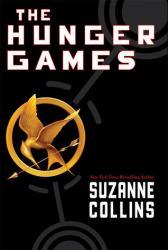
THIS IS A MUST READ! Suzanne Collins does a fabulous job on bringing this novel to life. It is an easy read for word choice. The main characters are very easy to love. The Hunger Games is the first book to a 3-part series.
I recommend ages 11+ because it is a longer book with more mature events. I really enjoyed this series so I rate it a 4 Star. Team Peeta!

THIS IS A MUST READ! Suzanne Collins does a fabulous job on bringing this novel to life. It is an easy read for word choice. The main characters are very easy to love. The Hunger Games is the first book to a 3-part series.
I recommend ages 11+ because it is a longer book with more mature events. I really enjoyed this series so I rate it a 4 Star. Team Peeta!

THIS IS A MUST READ! Suzanne Collins does a fabulous job on bringing this novel to life. It is an easy read for word choice. The main characters are very easy to love. The Hunger Games is the first book to a 3-part series.
I recommend ages 11+ because it is a longer book with more mature events. I really enjoyed this series so I rate it a 4 Star. Team Peeta!

THIS IS A MUST READ! Suzanne Collins does a fabulous job on bringing this novel to life. It is an easy read for word choice. The main characters are very easy to love. The Hunger Games is the first book to a 3-part series.
I recommend ages 11+ because it is a longer book with more mature events. I really enjoyed this series so I rate it a 4 Star. Team Peeta!

THIS IS A MUST READ! Suzanne Collins does a fabulous job on bringing this novel to life. It is an easy read for word choice. The main characters are very easy to love. The Hunger Games is the first book to a 3-part series.
I recommend ages 11+ because it is a longer book with more mature events. I really enjoyed this series so I rate it a 4 Star. Team Peeta!
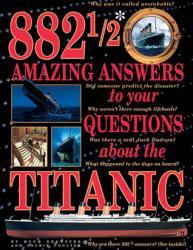
All Titanic lovers must read this. It is very straightforward and this book covered a lot of the questions I had. I recommend this book for ages 12+ because it’s a very serious book about a world-wide known tradegy and it covers sensitive topics that demand full respect. I thouroughly enjoyed reading it. It taught me more about this beautiful ship than I’ve ever known. 882.5 Amazing Answers to your Questions about the Titanic is worth reading! I rate it 4 stars because it was truly helpful and a great read.
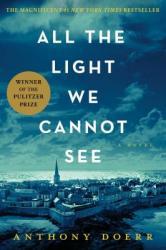
If All the Light We Cannot See were a movie, I would consider it “Oscar bait.” Set during the most romantic of World Wars: check. Main character with disability: check. Drama, tragedy, and suspense: check, check, and check. It’s then no wonder that All the Light We Cannot See ended up winning a Pulitzer. Sure, it’s filled with plenty of the “award” tropes that we tend to see repeated over and over again—but it works. What helps this book stand out from the rest of the books and movies that try too hard to earn awards is twofold: its characters and its plot.
Before I get too far into my praise for this book, I have to mention that the narrator for the audiobook version seemed to mispronounce a few words early on, which threw me for a loop and made me wonder if I’ve been mispronouncing them myself. Similarly, it was a little challenging to track the timeframes for some of the subplots, but the impact of the book was still the same. The author was able to paint a vivid set of lives set on opposite sides of a global conflict. From the blind French girl forced to survive on her own to the prodigious German boy with a penchant for radios and STEM, their internal and external conflicts were prime examples of gripping and engaging storytelling.
While there didn’t seem to be one primary driving plot in this book, the addition of the handful of subplots worked in concert to create a gem of a story (har har). These subplots were natural to the characters that embodied them, which helped to produce an amount of realism that held everything together. Everything just made sense, and even the semi-tragic ending was a satisfying end that left no subplot or loose end untied.
A beautiful piece of prose worthy of its Pulitzer, I give All the Light We Cannot See 5.0 stars out of 5.

If All the Light We Cannot See were a movie, I would consider it “Oscar bait.” Set during the most romantic of World Wars: check. Main character with disability: check. Drama, tragedy, and suspense: check, check, and check. It’s then no wonder that All the Light We Cannot See ended up winning a Pulitzer. Sure, it’s filled with plenty of the “award” tropes that we tend to see repeated over and over again—but it works. What helps this book stand out from the rest of the books and movies that try too hard to earn awards is twofold: its characters and its plot.
Before I get too far into my praise for this book, I have to mention that the narrator for the audiobook version seemed to mispronounce a few words early on, which threw me for a loop and made me wonder if I’ve been mispronouncing them myself. Similarly, it was a little challenging to track the timeframes for some of the subplots, but the impact of the book was still the same. The author was able to paint a vivid set of lives set on opposite sides of a global conflict. From the blind French girl forced to survive on her own to the prodigious German boy with a penchant for radios and STEM, their internal and external conflicts were prime examples of gripping and engaging storytelling.
While there didn’t seem to be one primary driving plot in this book, the addition of the handful of subplots worked in concert to create a gem of a story (har har). These subplots were natural to the characters that embodied them, which helped to produce an amount of realism that held everything together. Everything just made sense, and even the semi-tragic ending was a satisfying end that left no subplot or loose end untied.
A beautiful piece of prose worthy of its Pulitzer, I give All the Light We Cannot See 5.0 stars out of 5.

If All the Light We Cannot See were a movie, I would consider it “Oscar bait.” Set during the most romantic of World Wars: check. Main character with disability: check. Drama, tragedy, and suspense: check, check, and check. It’s then no wonder that All the Light We Cannot See ended up winning a Pulitzer. Sure, it’s filled with plenty of the “award” tropes that we tend to see repeated over and over again—but it works. What helps this book stand out from the rest of the books and movies that try too hard to earn awards is twofold: its characters and its plot.
Before I get too far into my praise for this book, I have to mention that the narrator for the audiobook version seemed to mispronounce a few words early on, which threw me for a loop and made me wonder if I’ve been mispronouncing them myself. Similarly, it was a little challenging to track the timeframes for some of the subplots, but the impact of the book was still the same. The author was able to paint a vivid set of lives set on opposite sides of a global conflict. From the blind French girl forced to survive on her own to the prodigious German boy with a penchant for radios and STEM, their internal and external conflicts were prime examples of gripping and engaging storytelling.
While there didn’t seem to be one primary driving plot in this book, the addition of the handful of subplots worked in concert to create a gem of a story (har har). These subplots were natural to the characters that embodied them, which helped to produce an amount of realism that held everything together. Everything just made sense, and even the semi-tragic ending was a satisfying end that left no subplot or loose end untied.
A beautiful piece of prose worthy of its Pulitzer, I give All the Light We Cannot See 5.0 stars out of 5.

If All the Light We Cannot See were a movie, I would consider it “Oscar bait.” Set during the most romantic of World Wars: check. Main character with disability: check. Drama, tragedy, and suspense: check, check, and check. It’s then no wonder that All the Light We Cannot See ended up winning a Pulitzer. Sure, it’s filled with plenty of the “award” tropes that we tend to see repeated over and over again—but it works. What helps this book stand out from the rest of the books and movies that try too hard to earn awards is twofold: its characters and its plot.
Before I get too far into my praise for this book, I have to mention that the narrator for the audiobook version seemed to mispronounce a few words early on, which threw me for a loop and made me wonder if I’ve been mispronouncing them myself. Similarly, it was a little challenging to track the timeframes for some of the subplots, but the impact of the book was still the same. The author was able to paint a vivid set of lives set on opposite sides of a global conflict. From the blind French girl forced to survive on her own to the prodigious German boy with a penchant for radios and STEM, their internal and external conflicts were prime examples of gripping and engaging storytelling.
While there didn’t seem to be one primary driving plot in this book, the addition of the handful of subplots worked in concert to create a gem of a story (har har). These subplots were natural to the characters that embodied them, which helped to produce an amount of realism that held everything together. Everything just made sense, and even the semi-tragic ending was a satisfying end that left no subplot or loose end untied.
A beautiful piece of prose worthy of its Pulitzer, I give All the Light We Cannot See 5.0 stars out of 5.

If All the Light We Cannot See were a movie, I would consider it “Oscar bait.” Set during the most romantic of World Wars: check. Main character with disability: check. Drama, tragedy, and suspense: check, check, and check. It’s then no wonder that All the Light We Cannot See ended up winning a Pulitzer. Sure, it’s filled with plenty of the “award” tropes that we tend to see repeated over and over again—but it works. What helps this book stand out from the rest of the books and movies that try too hard to earn awards is twofold: its characters and its plot.
Before I get too far into my praise for this book, I have to mention that the narrator for the audiobook version seemed to mispronounce a few words early on, which threw me for a loop and made me wonder if I’ve been mispronouncing them myself. Similarly, it was a little challenging to track the timeframes for some of the subplots, but the impact of the book was still the same. The author was able to paint a vivid set of lives set on opposite sides of a global conflict. From the blind French girl forced to survive on her own to the prodigious German boy with a penchant for radios and STEM, their internal and external conflicts were prime examples of gripping and engaging storytelling.
While there didn’t seem to be one primary driving plot in this book, the addition of the handful of subplots worked in concert to create a gem of a story (har har). These subplots were natural to the characters that embodied them, which helped to produce an amount of realism that held everything together. Everything just made sense, and even the semi-tragic ending was a satisfying end that left no subplot or loose end untied.
A beautiful piece of prose worthy of its Pulitzer, I give All the Light We Cannot See 5.0 stars out of 5.
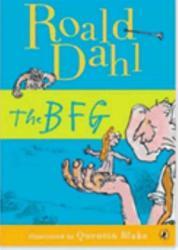
This book is so awesome it's probably my favorite book. It has so much detail that you can imagine exactly what this BFG is going through. Over all i love this book.
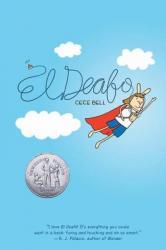
This book is full of so much character it's so hard to stop reading, and it's also an easy book to read because it's a graphic novel.This book tells so much story of this girls problems she goes through, the pros and the cons.


